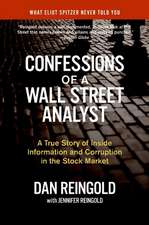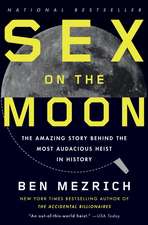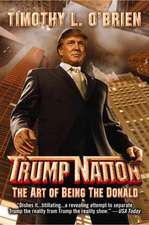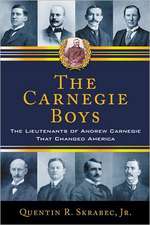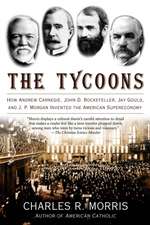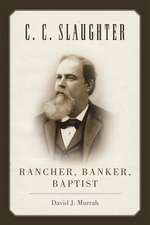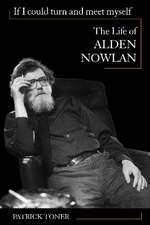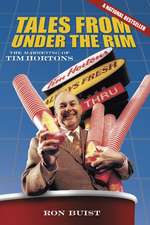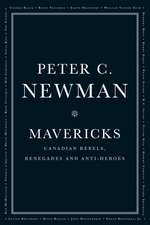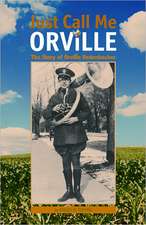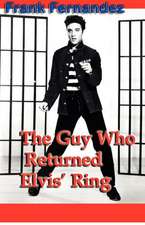The Accidental Billionaires: Diesterwegs Neusprachliche Bibliothek - Englische Abteilung
Autor Ben Mezrichen Limba Engleză Paperback – oct 2012
| Toate formatele și edițiile | Preț | Express |
|---|---|---|
| Paperback (2) | 57.71 lei 24-35 zile | +19.70 lei 7-11 zile |
| CORNERSTONE – 30 sep 2010 | 57.71 lei 24-35 zile | +19.70 lei 7-11 zile |
| Anchor Books – 31 aug 2010 | 112.40 lei 17-23 zile | +9.74 lei 7-11 zile |
Din seria Diesterwegs Neusprachliche Bibliothek - Englische Abteilung
-
 Preț: 61.07 lei
Preț: 61.07 lei -
 Preț: 83.65 lei
Preț: 83.65 lei -
 Preț: 82.10 lei
Preț: 82.10 lei -
 Preț: 101.27 lei
Preț: 101.27 lei -
 Preț: 70.47 lei
Preț: 70.47 lei -
 Preț: 70.18 lei
Preț: 70.18 lei -
 Preț: 63.68 lei
Preț: 63.68 lei -
 Preț: 111.99 lei
Preț: 111.99 lei -
 Preț: 73.79 lei
Preț: 73.79 lei -
 Preț: 80.99 lei
Preț: 80.99 lei -
 Preț: 82.12 lei
Preț: 82.12 lei -
 Preț: 54.75 lei
Preț: 54.75 lei -
 Preț: 91.09 lei
Preț: 91.09 lei -
 Preț: 111.51 lei
Preț: 111.51 lei -
 Preț: 90.27 lei
Preț: 90.27 lei -
 Preț: 49.12 lei
Preț: 49.12 lei -
 Preț: 95.21 lei
Preț: 95.21 lei -
 Preț: 72.49 lei
Preț: 72.49 lei -
 Preț: 67.48 lei
Preț: 67.48 lei -
 Preț: 85.66 lei
Preț: 85.66 lei
Preț: 83.36 lei
Nou
Puncte Express: 125
Preț estimativ în valută:
15.95€ • 17.32$ • 13.40£
15.95€ • 17.32$ • 13.40£
Carte indisponibilă temporar
Doresc să fiu notificat când acest titlu va fi disponibil:
Se trimite...
Preluare comenzi: 021 569.72.76
Specificații
ISBN-13: 9783425048178
ISBN-10: 3425048171
Pagini: 296
Dimensiuni: 135 x 212 x 15 mm
Greutate: 0.35 kg
Editura: Diesterweg Moritz
Seria Diesterwegs Neusprachliche Bibliothek - Englische Abteilung
ISBN-10: 3425048171
Pagini: 296
Dimensiuni: 135 x 212 x 15 mm
Greutate: 0.35 kg
Editura: Diesterweg Moritz
Seria Diesterwegs Neusprachliche Bibliothek - Englische Abteilung
Descriere
Descriere de la o altă ediție sau format:
Eduardo Saverin and Mark Zuckerberg - an awkward maths prodigy and a painfully shy computer genius - were never going to fit in at elite, polished Harvard.
Eduardo Saverin and Mark Zuckerberg - an awkward maths prodigy and a painfully shy computer genius - were never going to fit in at elite, polished Harvard.
Notă biografică
Ben Mezrich, a Harvard graduate, is the author of eleven books, including the international bestseller Bringing Down the House, which spent sixty-three weeks on the New York Times bestseller list and was made into the movie 21, starring Kevin Spacey. He is a columnist for Boston Common and a contributor to Flush magazine. Ben lives in Boston with his wife, Tonya.
Mezrich's next book, Sex on the Moon, will be published in summer 2011.
Visit the author's website at www.benmezrich.com.
Mezrich's next book, Sex on the Moon, will be published in summer 2011.
Visit the author's website at www.benmezrich.com.
Extras
Chapter 1 | October 2003
It was probably the third cocktail that did the trick. It was hard for Eduardo to tell for sure, because the three drinks had come in such rapid succession—the empty plastic cups were now stacked accordion style on the windowsill behind him—that he hadn’t been able to gauge for certain when the change had occurred. But there was no denying it now, the evidence was all over him. The pleasantly warm flush to his normally sallow cheeks; the relaxed, almost rubbery way he leaned against the window—a stark contrast to his usual calcified, if slightly hunched posture; and most important of all, the easy smile on his face, something he’d practiced unsuccessfully in the mirror for two hours before he’d left his dorm room that evening. No doubt at all, the alcohol had taken effect, and Eduardo wasn’t scared anymore. At the very least, he was no longer overwhelmed with the intense urge to get the fuck out of there.
To be sure, the room in front of him was intimidating: the immense crystal chandelier hanging from the arched, cathedral ceiling; the thick red velvet carpeting that seemed to bleed right out of the regal mahogany walls; the meandering, bifurcated staircase that snaked up toward the storied, ultrasecret, catacombed upper floors. Even the windowpanes behind Eduardo’s head seemed treacherous, lit from behind by the flickering anger of a bonfire consuming most of the narrow courtyard outside, twists of flame licking at the ancient, pockmarked glass.
This was a terrifying place, especially for a kid like Eduardo. He hadn’t grown up poor—he’d spent most of his childhood being shuttled between upper-middle-class communities in Brazil and Miami before matriculating at Harvard—but he was a complete stranger to the sort of old-world opulence this room represented. Even through the booze, Eduardo could feel the insecurities rumbling deep down in the pit of his stomach. He felt like a freshman all over again, stepping into Harvard Yard for the first time, wondering what the hell he was doing there, wondering how he could possibly belong in a place like that. How he could possibly belong in a place like this.
He shifted against the sill, scanning the crowd of young men that filled most of the cavernous room. A mob, really, bunched together around the pair of makeshift bars that had been set up specifically for the event. The bars themselves were fairly shoddy—wooden tables that were little more than slabs, starkly out of character in such an austere setting—but nobody noticed, because the bars were staffed by the only girls in the room; matching, bust-heavy blondes in low-cut black tops, brought in from one of the local all-female colleges to cater to the mob of young men.
The mob, in many ways, was even more frightening than the building itself. Eduardo couldn’t tell for sure, but he guessed there had to be about two hundred of them—all male, all dressed in similar dark blazers and equally dark slacks. Sophomores, mostly; a mix of races, but there was something very similar about all the faces—the smiles that seemed so much easier than Eduardo’s, the confidence in those two hundred pairs of eyes—these kids weren’t used to having to prove themselves. They belonged. For most of them, this party—this place—was just a formality.
Eduardo took a deep breath, wincing slightly at the bitter tinge to the air. The ash from the bonfire outside was making its way through the windowpanes, but he didn’t move away from his perch against the sill, not yet. He wasn’t ready yet.
Instead, he let his attention settle on the group of blazers closest to him—four kids of medium build. He didn’t recognize any of them from his classes; two of the kids were blond and preppy-looking, like they’d just stepped off a train from Connecticut. The third was Asian, and seemed a little older, but it was hard to tell for sure. The fourth, however—African American and very polished-looking, from his grin to his perfectly coiffed hair—was definitely a senior.
Eduardo felt his back stiffen, and he glanced toward the black kid’s tie. The color of the material was all the verification Eduardo needed. The kid was a senior, and it was time for Eduardo to make
his move.
Eduardo straightened his shoulders and pushed off of the sill. He nodded at the two Connecticut kids and the Asian, but his attention remained focused on the older kid—and his solid black, uniquely decorated tie.
“Eduardo Saverin.” Eduardo introduced himself, vigorously shaking the kid’s hand. “Great to meet you.”
The kid responded with his own name, Darron something, which Eduardo filed away in the back of his memory. The kid’s name didn’t really matter; the tie alone told him everything he needed to know. The purpose of this entire evening lay in the little white birds that speckled the solid black material. The tie designated him as a member of the Phoenix-S K; he was one of twenty or so hosts of the evening’s affair, who were scattered among the two hundred sophomore men.
“Saverin. You’re the one with the hedge fund, right?”
Eduardo blushed, but inside he was thrilled that the Phoenix member recognized his name. It was a bit of an exaggeration—he didn’t have a hedge fund, he’d simply made some money investing with his brother during his sophomore summer—but he wasn’t going to correct the mistake. If the Phoenix members were talking about him, if somehow they were impressed by what they’d heard—well, maybe he had a chance.
It was a heady thought, and Eduardo’s heart started to beat a
little harder as he tried to spread just the right amount of bullshit
to keep the senior interested. More than any test he’d taken freshman or sophomore year, this moment was going to define his future. Eduardo knew what it would mean to gain entrance to the Phoenix—for his social status during his last two years of college, and for his future, whatever future he chose to chase.
Like the secret societies at Yale that had gotten so much press over the years, the Final Clubs were the barely kept secret soul of campus life at Harvard; housed in centuries-old mansions spread out across Cambridge, the eight all-male clubs had nurtured generations of world leaders, financial giants, and power brokers. Almost as important, membership in one of the eight clubs granted an instant social identity; each of the clubs had a different personality, from the ultraexclusive Porcellian, the oldest club on campus, whose members had names like Roosevelt and Rockefeller, to the prepped-out Fly Club, which had spawned two presidents and a handful of billionaires, each of the clubs had its own distinct, and instantly defining, power. The Phoenix, for its part, wasn’t the most prestigious of the clubs, but in many ways it was the social king of the hill; the austere building at 323 Mt. Auburn Street was the destination of choice on Friday and Saturday nights, and if you were a member of the Phoenix, not only were you a part of a century-old network, you also got to spend your weekends at the best parties on campus, surrounded by the hottest girls culled from schools all over the 02138 zip code.
“The hedge fund is a hobby, really,” Eduardo humbly confided as the small group of blazers hung on his words. “We focus mostly on oil futures. See, I’ve always been obsessed with the weather, and I made a few good hurricane predictions that the rest of the market hadn’t quite picked up on.”
Eduardo knew he was walking a fine line, trying to minimize the geekiness of how he’d actually outguessed the oil market; he knew the Phoenix member wanted to hear about the three hundred thousand dollars Eduardo had made trading oil, not the nerdish obsession with meteorology that had made the trades possible. But Eduardo also wanted to show off a little; Darron’s mention of his “hedge fund” only confirmed what Eduardo had already suspected, that the only reason he was in that room in the first place was his reputation as a budding businessman.
Hell, he knew he didn’t have much else going for him. He wasn’t an athlete, didn’t come from a long line of legacies, and certainly wasn’t burning up the social scene. He was gawky, his arms were a little too long for his body, and he only really relaxed when he drank. But still, he was there, in that room. A year late—most people were “punched” during the fall of their sophomore year, not as juniors like Eduardo—but he was there just the same.
The whole punch process had taken him by surprise. Just two nights before, Eduardo had been sitting at his desk in his dorm room, working on a twenty-page paper about some bizarre tribe that lived in the Amazonian rain forest, when an invitation had suddenly appeared under his door. It wasn’t anything like a fairy-tale golden ticket—of the two hundred mostly sophomores who were invited to the first punch party, only twenty or so would emerge as new members of the Phoenix— but the moment was as thrilling to Eduardo as when he had opened his Harvard acceptance letter. He’d been hoping for a shot at one of the clubs since he’d gotten to Harvard, and now, finally, he’d gotten that shot.
Now it was just up to him—and, of course, the kids wearing
the black, bird-covered ties. Each of the four punch events—like tonight’s meet-and-greet cocktail party—was a sort of mass interview. After Eduardo and the rest of the invitees were sent home to their various dorms spread across the campus, the Phoenix members would convene in one of the secret rooms upstairs to deliberate their fates. After each event, a smaller and smaller percentage of the punched would get the next invitation—and slowly, the two hundred would be weeded down to twenty.
If Eduardo made the cut, his life would change. And if it took some creative “elaboration” of a summer spent analyzing barometric changes and predicting how those changes would affect oil distribution patterns —well, Eduardo wasn’t above a little applied creativity.
“The real trick is figuring out how to turn three hundred thousand into three million.” Eduardo grinned. “But that’s the fun of hedge funds. You get to be real inventive.”
He delved into the bullshit with full enthusiasm, carrying the whole group of blazers with him. He’d honed his bullshit skills over numerous prepunch parties as a freshman and sophomore; the trick was to forget that this was no longer a dry run—that this was the real thing. In his head, he tried to pretend he was back at one of those less important mixers, when he wasn’t yet being judged, when he wasn’t trying to end up on some all-important list. He could remember one, in particular, that had gone incredibly well; a Caribbean-themed party, with faux palm trees and sand on the floor. He tried to put himself back there—remembering the less imposing details of the decor, remembering how simple and easy the conversation had come. Within moments, he felt himself relaxing even more, allowing himself to become enrapt in his own story, the sound of his own voice.
He was back at that Caribbean party, down to the last detail. He remembered the reggae music bouncing off the walls, the sound of steel drums biting at his ears. He remembered the rum-based punch, the girls in flowered bikinis.
He even remembered the kid with the mop of curly hair who had been standing in a corner of the room, barely ten feet away from where he was now, watching his progress, trying to get up the nerve to follow his lead and approach one of the older Phoenix kids before it was too late. But the kid had never moved from the corner; in fact, his self- defeating awkwardness had been so palpable, it had acted like a force field, carving out an area of the room around him, a sort of reverse magnetism, pushing anyone nearby away.
Eduardo had felt a tinge of sympathy at the time—because he had recognized that kid with the curly hair—and because there was no way in hell a kid like that was ever going to get into the Phoenix. A kid like that had no business punching any of the Final Clubs—God only knew what he had been doing there at the prepunch party in the first place. Harvard had plenty of little niches for kids like that; computer labs, chess guilds, dozens of underground organizations and hobbies catering to every imaginable twist of social impairment. One look at the kid, and it had been obvious to Eduardo that he didn’t know the first thing about the sort of social networking one had to master to get into a club like the Phoenix.
But then, as now, Eduardo had been too busy chasing his dream to spend much time thinking about the awkward kid in the corner.
Certainly, he had no way of knowing, then or now, that the kid with the curly hair was one day going to take the entire concept of a social network and turn it on its head. That one day, the kid with the curly hair struggling through that prepunch party was going to change Eduardo’s life more than any Final Club ever could.
Chapter 2 | Harvard Yard
Ten minutes past one in the morning, and something had gone terribly wrong with the decorations. It wasn’t just that the ribbons of white- and blue-colored crepe paper attached to the walls had started to droop —one of them bowing so low that its taffeta-like curls threatened to overwhelm the oversize punch bowl perched below—but now the brightly designed decorative posters that covered much of the bare space between the crepe paper had also begun to unhinge and drop to the floor at an alarming rate. In some areas, the beige carpet had almost vanished beneath piles of glossy computer-printed pages.
On closer inspection, the catastrophe of the decorations made more sense; the peeling strips of packing tape that held the colored posters and crepe-paper ribbons in place were clearly visible, and what’s more, a sheen of condensation was slowly working the strips of tape free as the heat from the overworked radiators that lined the walls played havoc with the hastily constructed ambience.
The heat was necessary, of course, because it was New England in October. The banner hanging from the ceiling above the dying posters was all warmth—alpha epsilon pi, meet and greet, 2003—but there was no way a banner could compete with the ice that had begun to form on the oversize windows lining the back wall of the cavernous lecture room. All in all, the decorating committee had done what they could with the room—normally home to numerous philosophy and history classes, lodged as it was deep into the fifth floor of an aging building in Harvard Yard. They’d carted away the row upon row of scuffed wooden chairs and dilapidated desks, tried to cover up the bland, chipped walls with posters and crepe, and put up the banner, concealing most of the ugly, oversize fluorescent ceiling lights. Topping it all off, there was the coup de grâce; an iPod player attached to two enormous and expensive- looking speakers set on the little stage at the head of the room, where the professor’s lectern usually stood.
It was probably the third cocktail that did the trick. It was hard for Eduardo to tell for sure, because the three drinks had come in such rapid succession—the empty plastic cups were now stacked accordion style on the windowsill behind him—that he hadn’t been able to gauge for certain when the change had occurred. But there was no denying it now, the evidence was all over him. The pleasantly warm flush to his normally sallow cheeks; the relaxed, almost rubbery way he leaned against the window—a stark contrast to his usual calcified, if slightly hunched posture; and most important of all, the easy smile on his face, something he’d practiced unsuccessfully in the mirror for two hours before he’d left his dorm room that evening. No doubt at all, the alcohol had taken effect, and Eduardo wasn’t scared anymore. At the very least, he was no longer overwhelmed with the intense urge to get the fuck out of there.
To be sure, the room in front of him was intimidating: the immense crystal chandelier hanging from the arched, cathedral ceiling; the thick red velvet carpeting that seemed to bleed right out of the regal mahogany walls; the meandering, bifurcated staircase that snaked up toward the storied, ultrasecret, catacombed upper floors. Even the windowpanes behind Eduardo’s head seemed treacherous, lit from behind by the flickering anger of a bonfire consuming most of the narrow courtyard outside, twists of flame licking at the ancient, pockmarked glass.
This was a terrifying place, especially for a kid like Eduardo. He hadn’t grown up poor—he’d spent most of his childhood being shuttled between upper-middle-class communities in Brazil and Miami before matriculating at Harvard—but he was a complete stranger to the sort of old-world opulence this room represented. Even through the booze, Eduardo could feel the insecurities rumbling deep down in the pit of his stomach. He felt like a freshman all over again, stepping into Harvard Yard for the first time, wondering what the hell he was doing there, wondering how he could possibly belong in a place like that. How he could possibly belong in a place like this.
He shifted against the sill, scanning the crowd of young men that filled most of the cavernous room. A mob, really, bunched together around the pair of makeshift bars that had been set up specifically for the event. The bars themselves were fairly shoddy—wooden tables that were little more than slabs, starkly out of character in such an austere setting—but nobody noticed, because the bars were staffed by the only girls in the room; matching, bust-heavy blondes in low-cut black tops, brought in from one of the local all-female colleges to cater to the mob of young men.
The mob, in many ways, was even more frightening than the building itself. Eduardo couldn’t tell for sure, but he guessed there had to be about two hundred of them—all male, all dressed in similar dark blazers and equally dark slacks. Sophomores, mostly; a mix of races, but there was something very similar about all the faces—the smiles that seemed so much easier than Eduardo’s, the confidence in those two hundred pairs of eyes—these kids weren’t used to having to prove themselves. They belonged. For most of them, this party—this place—was just a formality.
Eduardo took a deep breath, wincing slightly at the bitter tinge to the air. The ash from the bonfire outside was making its way through the windowpanes, but he didn’t move away from his perch against the sill, not yet. He wasn’t ready yet.
Instead, he let his attention settle on the group of blazers closest to him—four kids of medium build. He didn’t recognize any of them from his classes; two of the kids were blond and preppy-looking, like they’d just stepped off a train from Connecticut. The third was Asian, and seemed a little older, but it was hard to tell for sure. The fourth, however—African American and very polished-looking, from his grin to his perfectly coiffed hair—was definitely a senior.
Eduardo felt his back stiffen, and he glanced toward the black kid’s tie. The color of the material was all the verification Eduardo needed. The kid was a senior, and it was time for Eduardo to make
his move.
Eduardo straightened his shoulders and pushed off of the sill. He nodded at the two Connecticut kids and the Asian, but his attention remained focused on the older kid—and his solid black, uniquely decorated tie.
“Eduardo Saverin.” Eduardo introduced himself, vigorously shaking the kid’s hand. “Great to meet you.”
The kid responded with his own name, Darron something, which Eduardo filed away in the back of his memory. The kid’s name didn’t really matter; the tie alone told him everything he needed to know. The purpose of this entire evening lay in the little white birds that speckled the solid black material. The tie designated him as a member of the Phoenix-S K; he was one of twenty or so hosts of the evening’s affair, who were scattered among the two hundred sophomore men.
“Saverin. You’re the one with the hedge fund, right?”
Eduardo blushed, but inside he was thrilled that the Phoenix member recognized his name. It was a bit of an exaggeration—he didn’t have a hedge fund, he’d simply made some money investing with his brother during his sophomore summer—but he wasn’t going to correct the mistake. If the Phoenix members were talking about him, if somehow they were impressed by what they’d heard—well, maybe he had a chance.
It was a heady thought, and Eduardo’s heart started to beat a
little harder as he tried to spread just the right amount of bullshit
to keep the senior interested. More than any test he’d taken freshman or sophomore year, this moment was going to define his future. Eduardo knew what it would mean to gain entrance to the Phoenix—for his social status during his last two years of college, and for his future, whatever future he chose to chase.
Like the secret societies at Yale that had gotten so much press over the years, the Final Clubs were the barely kept secret soul of campus life at Harvard; housed in centuries-old mansions spread out across Cambridge, the eight all-male clubs had nurtured generations of world leaders, financial giants, and power brokers. Almost as important, membership in one of the eight clubs granted an instant social identity; each of the clubs had a different personality, from the ultraexclusive Porcellian, the oldest club on campus, whose members had names like Roosevelt and Rockefeller, to the prepped-out Fly Club, which had spawned two presidents and a handful of billionaires, each of the clubs had its own distinct, and instantly defining, power. The Phoenix, for its part, wasn’t the most prestigious of the clubs, but in many ways it was the social king of the hill; the austere building at 323 Mt. Auburn Street was the destination of choice on Friday and Saturday nights, and if you were a member of the Phoenix, not only were you a part of a century-old network, you also got to spend your weekends at the best parties on campus, surrounded by the hottest girls culled from schools all over the 02138 zip code.
“The hedge fund is a hobby, really,” Eduardo humbly confided as the small group of blazers hung on his words. “We focus mostly on oil futures. See, I’ve always been obsessed with the weather, and I made a few good hurricane predictions that the rest of the market hadn’t quite picked up on.”
Eduardo knew he was walking a fine line, trying to minimize the geekiness of how he’d actually outguessed the oil market; he knew the Phoenix member wanted to hear about the three hundred thousand dollars Eduardo had made trading oil, not the nerdish obsession with meteorology that had made the trades possible. But Eduardo also wanted to show off a little; Darron’s mention of his “hedge fund” only confirmed what Eduardo had already suspected, that the only reason he was in that room in the first place was his reputation as a budding businessman.
Hell, he knew he didn’t have much else going for him. He wasn’t an athlete, didn’t come from a long line of legacies, and certainly wasn’t burning up the social scene. He was gawky, his arms were a little too long for his body, and he only really relaxed when he drank. But still, he was there, in that room. A year late—most people were “punched” during the fall of their sophomore year, not as juniors like Eduardo—but he was there just the same.
The whole punch process had taken him by surprise. Just two nights before, Eduardo had been sitting at his desk in his dorm room, working on a twenty-page paper about some bizarre tribe that lived in the Amazonian rain forest, when an invitation had suddenly appeared under his door. It wasn’t anything like a fairy-tale golden ticket—of the two hundred mostly sophomores who were invited to the first punch party, only twenty or so would emerge as new members of the Phoenix— but the moment was as thrilling to Eduardo as when he had opened his Harvard acceptance letter. He’d been hoping for a shot at one of the clubs since he’d gotten to Harvard, and now, finally, he’d gotten that shot.
Now it was just up to him—and, of course, the kids wearing
the black, bird-covered ties. Each of the four punch events—like tonight’s meet-and-greet cocktail party—was a sort of mass interview. After Eduardo and the rest of the invitees were sent home to their various dorms spread across the campus, the Phoenix members would convene in one of the secret rooms upstairs to deliberate their fates. After each event, a smaller and smaller percentage of the punched would get the next invitation—and slowly, the two hundred would be weeded down to twenty.
If Eduardo made the cut, his life would change. And if it took some creative “elaboration” of a summer spent analyzing barometric changes and predicting how those changes would affect oil distribution patterns —well, Eduardo wasn’t above a little applied creativity.
“The real trick is figuring out how to turn three hundred thousand into three million.” Eduardo grinned. “But that’s the fun of hedge funds. You get to be real inventive.”
He delved into the bullshit with full enthusiasm, carrying the whole group of blazers with him. He’d honed his bullshit skills over numerous prepunch parties as a freshman and sophomore; the trick was to forget that this was no longer a dry run—that this was the real thing. In his head, he tried to pretend he was back at one of those less important mixers, when he wasn’t yet being judged, when he wasn’t trying to end up on some all-important list. He could remember one, in particular, that had gone incredibly well; a Caribbean-themed party, with faux palm trees and sand on the floor. He tried to put himself back there—remembering the less imposing details of the decor, remembering how simple and easy the conversation had come. Within moments, he felt himself relaxing even more, allowing himself to become enrapt in his own story, the sound of his own voice.
He was back at that Caribbean party, down to the last detail. He remembered the reggae music bouncing off the walls, the sound of steel drums biting at his ears. He remembered the rum-based punch, the girls in flowered bikinis.
He even remembered the kid with the mop of curly hair who had been standing in a corner of the room, barely ten feet away from where he was now, watching his progress, trying to get up the nerve to follow his lead and approach one of the older Phoenix kids before it was too late. But the kid had never moved from the corner; in fact, his self- defeating awkwardness had been so palpable, it had acted like a force field, carving out an area of the room around him, a sort of reverse magnetism, pushing anyone nearby away.
Eduardo had felt a tinge of sympathy at the time—because he had recognized that kid with the curly hair—and because there was no way in hell a kid like that was ever going to get into the Phoenix. A kid like that had no business punching any of the Final Clubs—God only knew what he had been doing there at the prepunch party in the first place. Harvard had plenty of little niches for kids like that; computer labs, chess guilds, dozens of underground organizations and hobbies catering to every imaginable twist of social impairment. One look at the kid, and it had been obvious to Eduardo that he didn’t know the first thing about the sort of social networking one had to master to get into a club like the Phoenix.
But then, as now, Eduardo had been too busy chasing his dream to spend much time thinking about the awkward kid in the corner.
Certainly, he had no way of knowing, then or now, that the kid with the curly hair was one day going to take the entire concept of a social network and turn it on its head. That one day, the kid with the curly hair struggling through that prepunch party was going to change Eduardo’s life more than any Final Club ever could.
Chapter 2 | Harvard Yard
Ten minutes past one in the morning, and something had gone terribly wrong with the decorations. It wasn’t just that the ribbons of white- and blue-colored crepe paper attached to the walls had started to droop —one of them bowing so low that its taffeta-like curls threatened to overwhelm the oversize punch bowl perched below—but now the brightly designed decorative posters that covered much of the bare space between the crepe paper had also begun to unhinge and drop to the floor at an alarming rate. In some areas, the beige carpet had almost vanished beneath piles of glossy computer-printed pages.
On closer inspection, the catastrophe of the decorations made more sense; the peeling strips of packing tape that held the colored posters and crepe-paper ribbons in place were clearly visible, and what’s more, a sheen of condensation was slowly working the strips of tape free as the heat from the overworked radiators that lined the walls played havoc with the hastily constructed ambience.
The heat was necessary, of course, because it was New England in October. The banner hanging from the ceiling above the dying posters was all warmth—alpha epsilon pi, meet and greet, 2003—but there was no way a banner could compete with the ice that had begun to form on the oversize windows lining the back wall of the cavernous lecture room. All in all, the decorating committee had done what they could with the room—normally home to numerous philosophy and history classes, lodged as it was deep into the fifth floor of an aging building in Harvard Yard. They’d carted away the row upon row of scuffed wooden chairs and dilapidated desks, tried to cover up the bland, chipped walls with posters and crepe, and put up the banner, concealing most of the ugly, oversize fluorescent ceiling lights. Topping it all off, there was the coup de grâce; an iPod player attached to two enormous and expensive- looking speakers set on the little stage at the head of the room, where the professor’s lectern usually stood.
Recenzii
“Uproarious. . . . Stimulating enough to keep even an unmedicated narcoleptic awake.”
—The Washington Times
“Mezrich’s prose has a cinematic flavor.”
—The Boston Globe
“You won’t be able to put the book down. The story’s far too compelling, and entirely too personal, to toss aside.”
—The Oregonian
—The Washington Times
“Mezrich’s prose has a cinematic flavor.”
—The Boston Globe
“You won’t be able to put the book down. The story’s far too compelling, and entirely too personal, to toss aside.”
—The Oregonian

